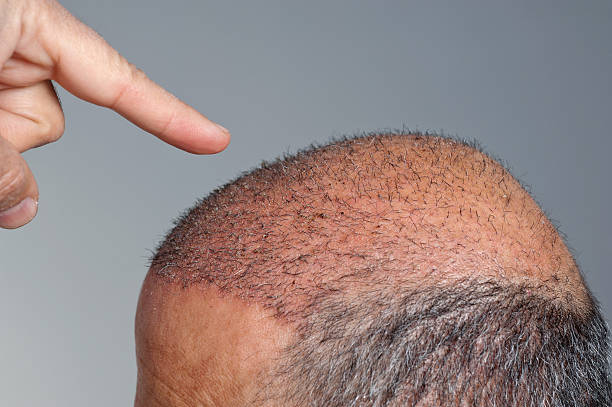Understand The Causes & Common Indicators Of Psoriasis
Psoriasis is a chronic autoimmune condition that affects millions of people worldwide. It primarily manifests as skin inflammation, leading to the rapid buildup of skin cells that form scaly, itchy, and sometimes painful patches. While the exact mechanisms behind psoriasis are not fully understood, researchers have identified several factors that contribute to its development and progression. This article delves into the causes of psoriasis, its common indicators, and how it impacts overall health, providing valuable insights for those seeking to understand this complex condition better.

What are the primary causes of psoriasis?
Psoriasis is believed to result from a combination of genetic predisposition and environmental triggers. The immune system plays a central role in the development of psoriasis. In individuals with this condition, the immune system mistakenly attacks healthy skin cells, accelerating the skin cell production process. This leads to an accumulation of cells on the skin’s surface, forming the characteristic plaques associated with psoriasis.
Genetic factors significantly influence an individual’s susceptibility to psoriasis. Research has identified several genes that may increase the risk of developing the condition. However, having these genes does not guarantee that a person will develop psoriasis. Environmental factors often act as triggers, initiating or exacerbating the condition in genetically predisposed individuals.
What are the common indicators of psoriasis?
Psoriasis can manifest in various forms, but there are several common indicators that help identify the condition:
-
Red, inflamed patches of skin: These are often covered with silvery-white scales.
-
Itching and burning sensations: The affected areas may be itchy or painful.
-
Dry, cracked skin: This can sometimes bleed or ooze.
-
Thickened or ridged nails: Psoriasis can affect fingernails and toenails.
-
Joint pain and stiffness: Some individuals may develop psoriatic arthritis.
The severity and location of symptoms can vary greatly from person to person. Common areas affected include the scalp, elbows, knees, and lower back. However, psoriasis can appear on any part of the body, including the face, hands, feet, and genitals.
Is psoriasis an infectious skin condition?
One of the most common misconceptions about psoriasis is that it is contagious. It is important to clarify that psoriasis is not an infectious skin condition. You cannot contract psoriasis through physical contact with someone who has the condition. This autoimmune disorder is not caused by bacteria, viruses, or other pathogens that can be transmitted from person to person.
Understanding that psoriasis is not contagious is crucial for both those living with the condition and the general public. This knowledge helps reduce stigma and promotes a more supportive environment for individuals managing psoriasis. It’s essential to educate others about the non-infectious nature of psoriasis to foster empathy and understanding.
What should you know about psoriasis and its impact on your health?
While psoriasis primarily affects the skin, its impact extends far beyond the visible symptoms. The condition can significantly affect an individual’s overall health and quality of life. People with psoriasis may experience:
-
Psychological distress: The visible nature of psoriasis can lead to self-consciousness, anxiety, and depression.
-
Increased risk of other health conditions: Psoriasis is associated with a higher risk of developing cardiovascular disease, diabetes, and certain types of cancer.
-
Sleep disturbances: Itching and discomfort can interfere with sleep quality.
-
Reduced physical activity: Severe psoriasis may limit mobility and discourage physical activity.
-
Social and relationship challenges: The condition can affect personal and professional relationships.
Understanding these potential impacts is crucial for developing a comprehensive approach to managing psoriasis. It’s important for individuals with psoriasis to work closely with healthcare providers to address both the physical symptoms and the broader health implications of the condition.
How can psoriasis be effectively managed?
Managing psoriasis often requires a multifaceted approach tailored to each individual’s needs. While there is no cure for psoriasis, various strategies can help control symptoms and improve quality of life:
-
Lifestyle modifications: Maintaining a healthy diet, managing stress, and avoiding known triggers can help reduce flare-ups.
-
Skincare routines: Regular moisturizing and gentle skincare practices can help alleviate dryness and scaling.
-
Light therapy: Controlled exposure to UV light can slow skin cell growth and reduce inflammation.
-
Stress management: Techniques such as meditation, yoga, or counseling can help manage stress-related flare-ups.
-
Regular exercise: Physical activity can help maintain overall health and potentially reduce psoriasis severity.
-
Support groups: Connecting with others who have psoriasis can provide emotional support and practical tips for managing the condition.
It’s important to note that effective psoriasis management often involves working closely with healthcare professionals to develop a personalized treatment plan. Regular follow-ups and adjustments to the management strategy may be necessary as the condition evolves over time.
In conclusion, understanding the causes and common indicators of psoriasis is crucial for effective management and improved quality of life. By recognizing that psoriasis is a complex, non-infectious condition with wide-ranging health impacts, individuals can take proactive steps to manage their symptoms and overall well-being. With ongoing research and advancements in treatment approaches, the outlook for those living with psoriasis continues to improve, offering hope for better management and potential breakthroughs in the future.
This article is for informational purposes only and should not be considered medical advice. Please consult a qualified healthcare professional for personalized guidance and treatment.




